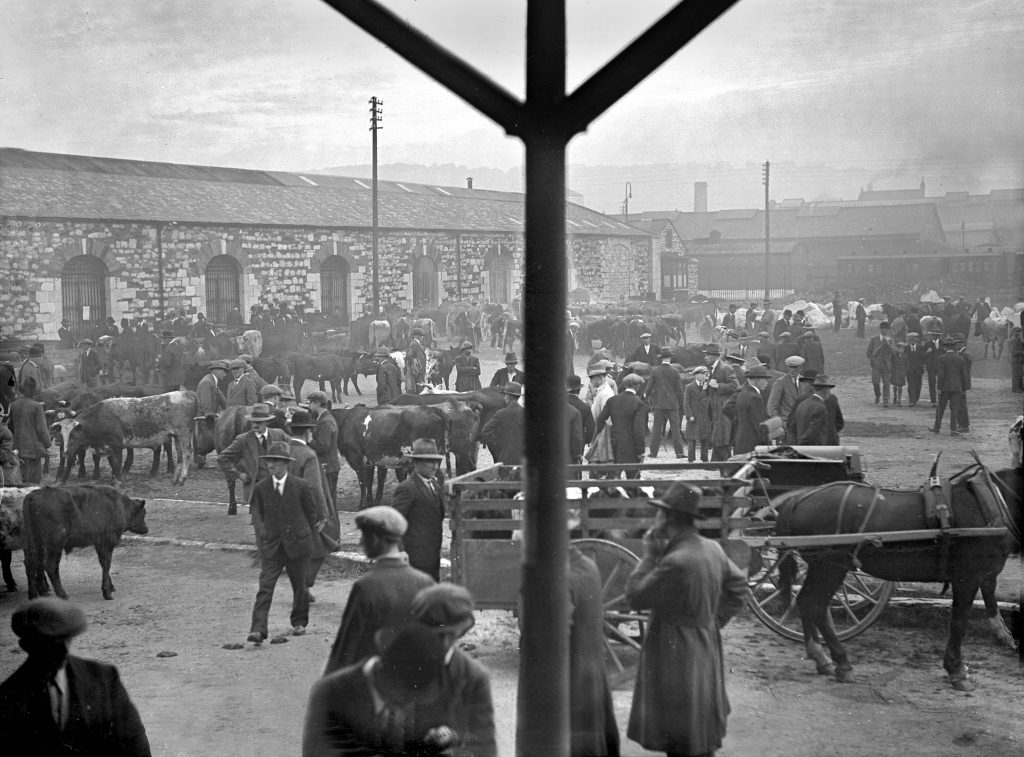In This Section
- Home
- Collections
- Atlas Resources for Schools
- Cork Fatality Register
- Mapping the Irish Revolution
- Mapping IRA Companies, July 1921-July 1922
- Mapping the Burning of Cork, 11-12 December 1920
- Martial Law, December 1920
- The IRA at War
- The Railway Workers’ Munitions Strike of 1920
- The Victory of Sinn Féin: The 1920 Local Elections
- The War of Words: Propaganda and Moral Force
- The IRA Offensive against the RIC, 1920
- De Valera’s American Tour, 1919-1920
- The British Reprisal Strategy and its Impact
- Cumann na mBan and the War of Independence
- The War Escalates, November 1920
- The War of Independence in Cork and Kerry
- The Story of 1916
- A 1916 Diary
- January 9-15 1916
- January 10-16, 1916
- January 17-23, 1916
- January 24-30, 1916
- February 1-6 1916
- February 7-14, 1916
- February 15-21, 1916
- February 22-27, 1916
- February 28-March 3, 1916
- March 6-13,1916
- March 14-20, 1916
- March 21-27 1916
- April 3-9, 1916
- April 10-16, 1916
- April 17-21,1916
- May 22-28 1916
- May 29-June 4 1916
- June 12-18 1916
- June 19-25 1916
- June 26-July 2 1916
- July 3-9 1916
- July 11-16 1916
- July 17-22 1916
- July 24-30 1916
- July 31- August 7,1916
- August 7-13 1916
- August 15-21 1916
- August 22-29 1916
- August 29-September 5 1916
- September 5-11, 1916
- September 12-18, 1916
- September 19-25, 1916
- September 26-October 2, 1916
- October 3-9, 1916
- October 10-16, 1916
- October 17-23, 1916
- October 24-31, 1916
- November 1-16, 1916
- November 7-13, 1916
- November 14-20, 1916
- November 21-27-1916
- November 28-December 4, 1916
- December 5-11, 1916
- December 12-19, 1916
- December 19-25, 1916
- December 26-January 3, 1916
- Cork's Historic Newspapers
- Feature Articles
- News and Events
- UCC's Civil War Centenary Programme
- Irish Civil War National Conference 15-18 June 2022
- Irish Civil War Fatalities Project
- Research Findings
- Explore the Fatalities Map
- Civil War Fatalities in Dublin
- Civil War Fatalities in Limerick
- Civil War Fatalities in Kerry
- Civil War Fatalities in Clare
- Civil War Fatalities in Cork
- Civil War Fatalities in the Northern Ireland
- Civil War Fatalities in Sligo
- Civil War Fatalities in Donegal
- Civil War Fatalities in Wexford
- Civil War Fatalities in Mayo
- Civil War Fatalities in Tipperary
- Military Archives National Army Fatalities Roll, 1922 – 1923
- Fatalities Index
- About the Project (home)
- The Irish Revolution (Main site)
Each week, we look back at what was “in the news” the same week 100 years ago – as reported in the Cork Examiner in 1916.
By Nicola Stathers

A cattle market at Cornmarket in the 1920’s, adjacent to Cork city hall.Irish Examiner Archives
Wednesday, November 1, 1916
- Letters to the Editor
The Christian-like practical sympathy evidenced all round to those who are suffering from this fearful war has been a bright spot amidst the wailings of the broken-hearted and afflicted and the encircling gloom. The wounded heroes, who are daily arriving, are justly entitled a first charge upon the nation’s tenderest care and, thank God, they are receiving it all round…
Thursday, November 2, 1916
- Capt. Bowen-Colthurst
To the Editor of the “Examiner”
Dear Sir – The following letter has been sent to the “Cork Constitution,” but was suppressed:
Dublin, Oct 26th
Sir – In your issue of Oct. 20th, Mr. Henning Corker pleads the insanity of Captain Bowen-Colthurst as an excuse for his actions, though in the same breath he declares that a “strong government” would have shot my husband ‘as a traitor to his country, and passed the usual Act of Amnesty in defence of the officer’ who carried out the execution. If Mr. Henning Corker believes that my husband deserved this fate for his opposition to the war and to recruiting in Ireland, why does he shelter his friend under the plea that he was “off his head”? …The important question, however, for the public, is not whether Captain Bowen-Colthurst was sane or not, but why, if insane, he was (as now admitted) kept in command for over ten days after his crime and actually given on May 8th charge of “the entire defences of Portobello Barracks?” If the authorities were aware (as they now admit) of his record and state of mind, why was he not at once put under restraint if only for the sake of his brother officers and men. -Yours faithfully,
Hanna Sheehy-Skeffington.
Friday, November 3, 1916
- Growing Food Prices
From various indications it is to be deduced that food prices will mount still higher, and that the times ahead, especially for the poor, consequently look extremely black and depressing.
The shortage is a war shortage. Labour must necessarily become scarcer as men go into the army, and there is also a growing shortage of ships.
